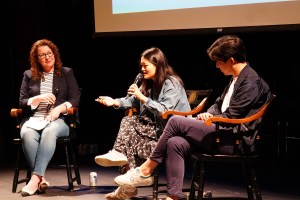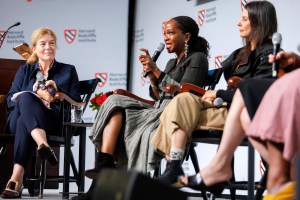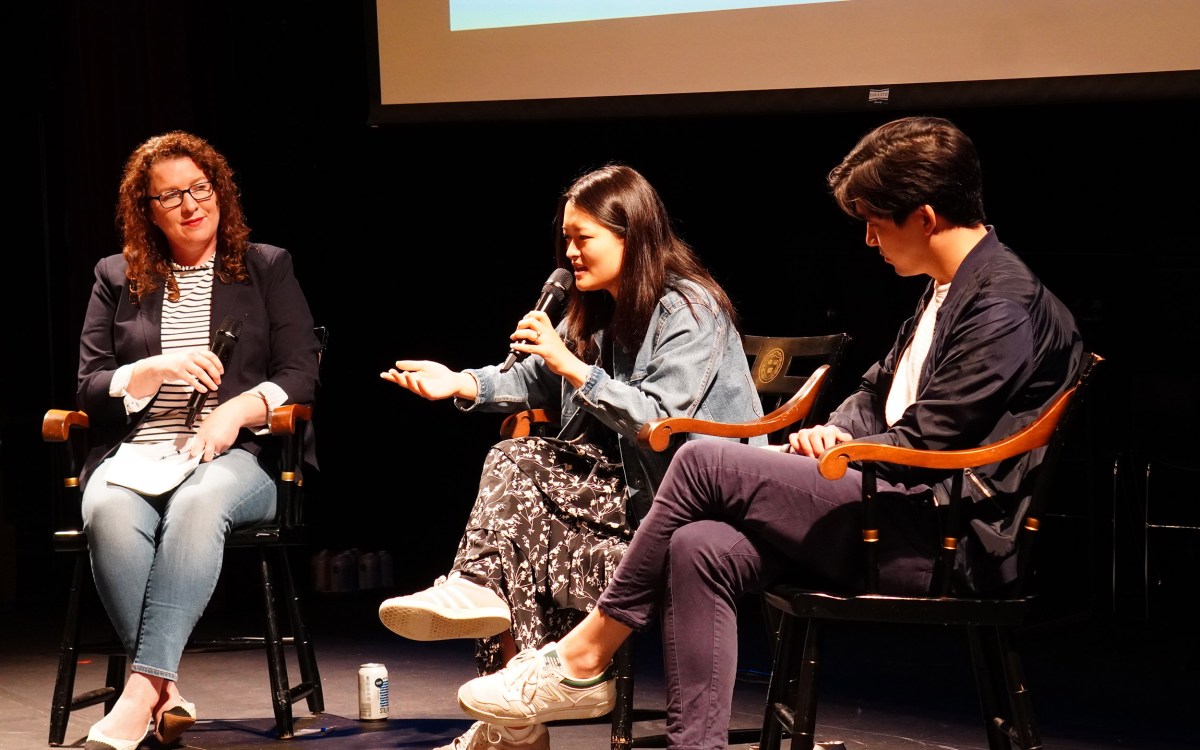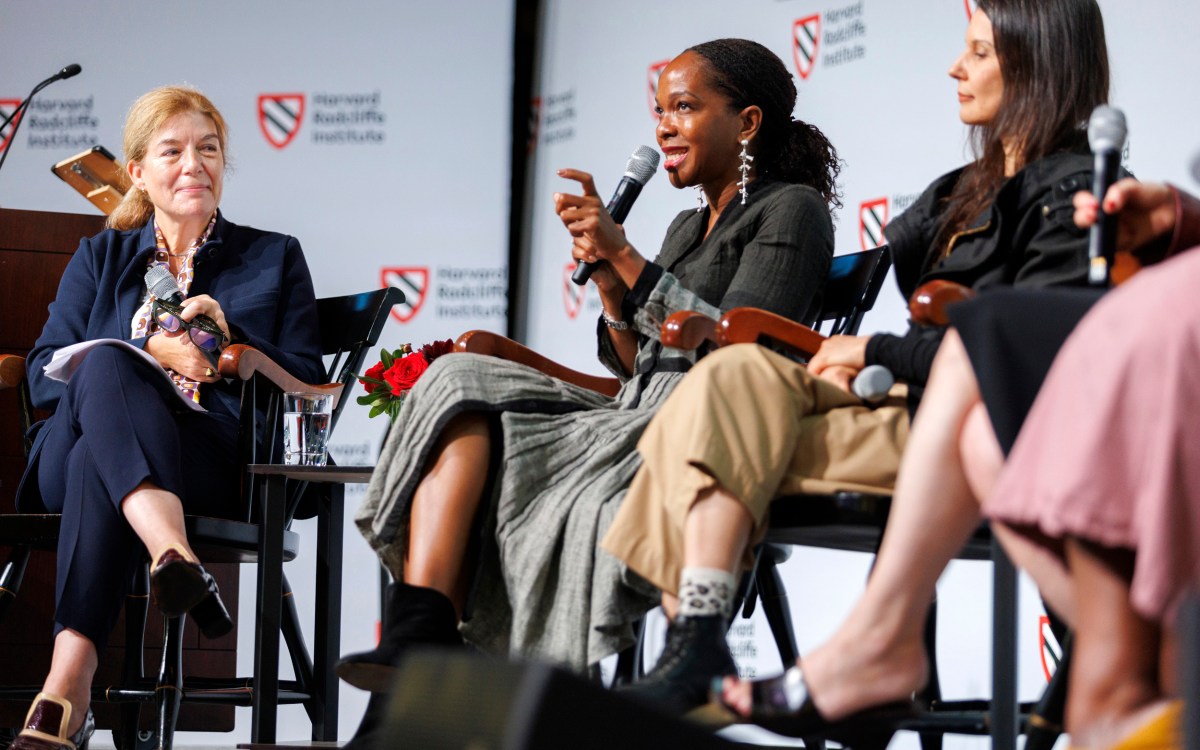What to make? Let the wheels decide.
Tom Hubbard and Forrest Sincoff Gard co-teach a class called “The Randomizer” that features six spinning wheels to influence student work — mixing up their clay, tools, and techniques.
Photos and video by Stephanie Mitchell/Harvard Staff Photographer
‘Randomizer’ gets creative gears spinning in ceramic studio
Working with clay requires taking risks. A roulette-style game called The Randomizer is helping students avoid the kind of overthinking that can stifle creativity.
Decorated with a rainbow and LED lights, the new apparatus, whose home this summer is the entrance to the Harvard Ceramics Program, is not a tool for physically shaping clay, but more a tool for the mind. “Where all your clay dreams come true,” said ceramics instructor Tom Hubbard, laughing.
The idea for The Randomizer, part game show, part improv comedy, came to Hubbard after seeing a slot machine-inspired contraption on the Food Network’s “Tournament of Champions.” He immediately saw how the tool could be applied to the ceramic studio, and enlisted fellow ceramicist Forrest Sincoff Gard, whose work centers around games and play. The two set out to design a co-taught class where the wheels took control, turning out random assignments.
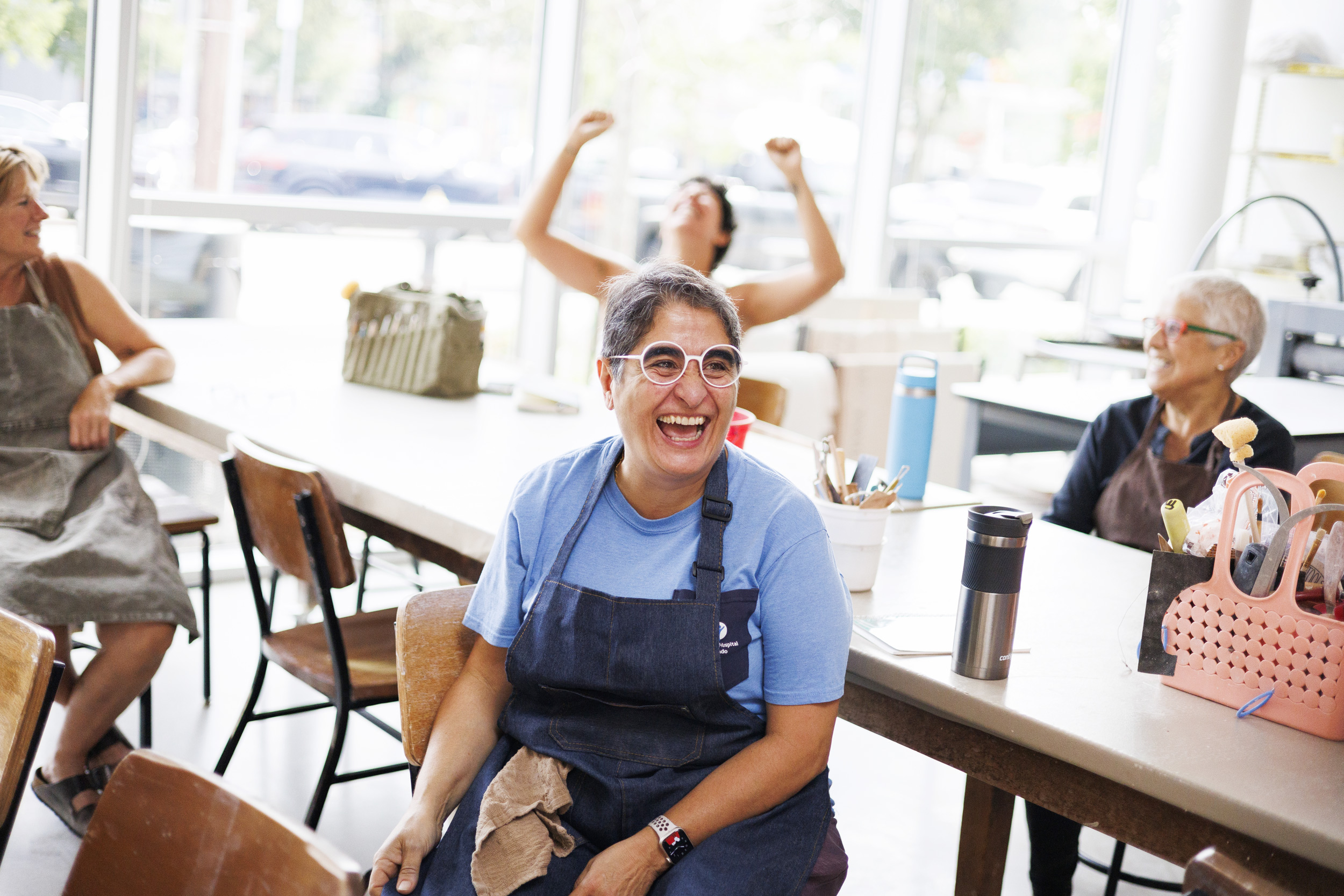
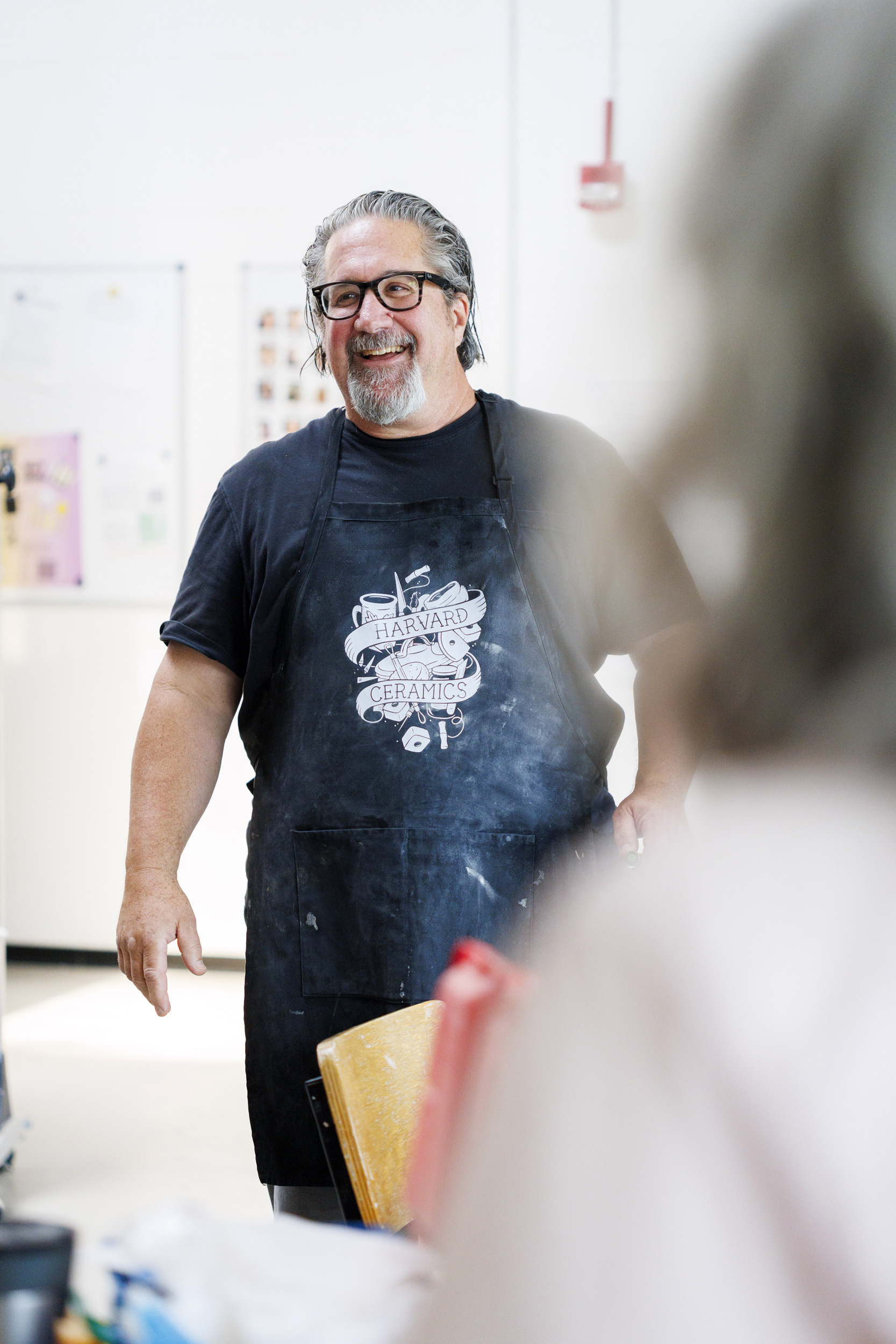
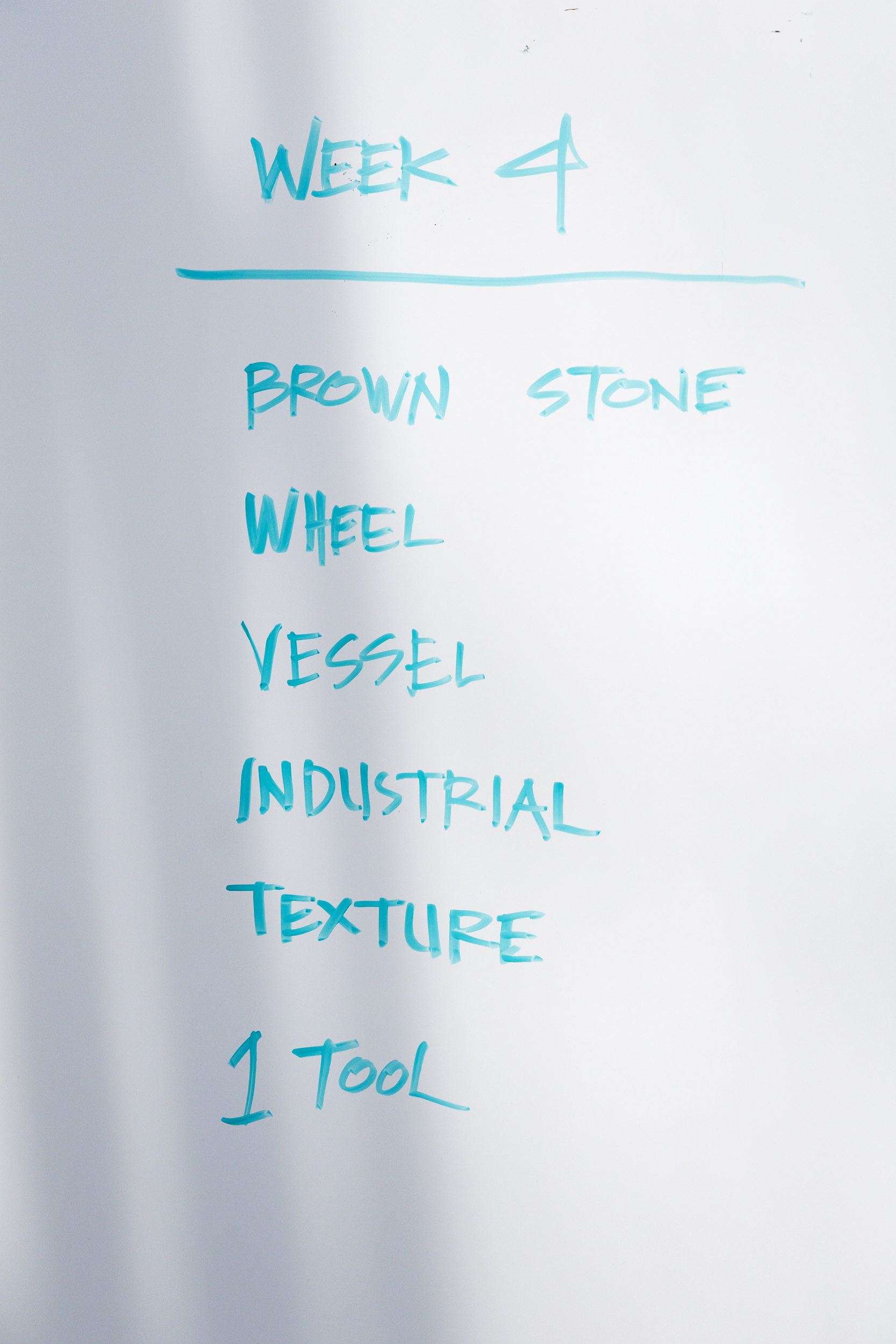
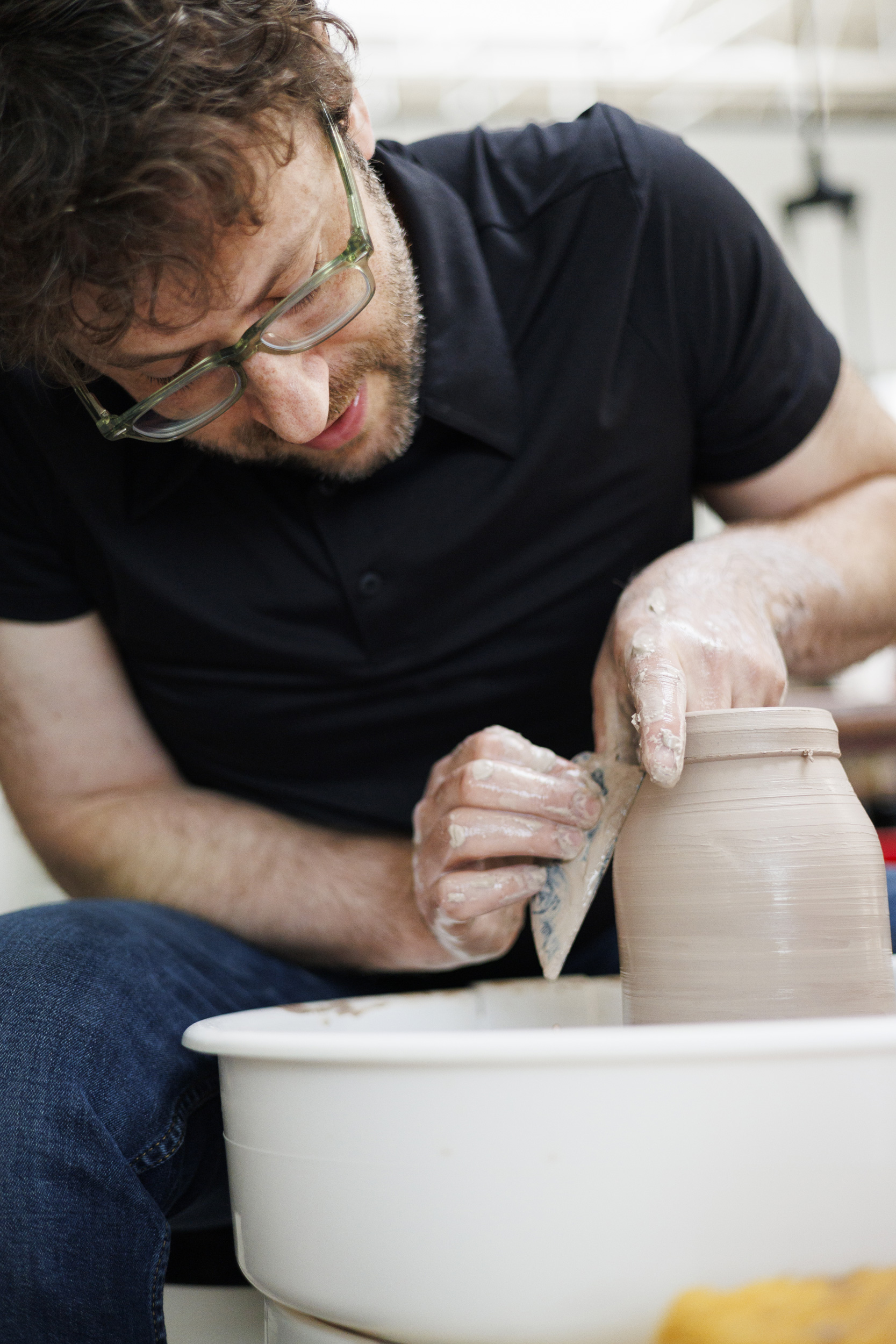
Hubbard constructed the Randomizer — “it’s a total DIY job” — with Sonotubes used for pouring cement footings, bearings, wooden dowls, and critically, flappers to create the characteristic clicking noise of a roulette wheel. He and Gard next set out to define the six categories — clay, method, object, style, surface, and wildcard — and compiled long lists for each category including such parameters as terra cotta, coil, sculpture, playful, underglaze transfer, and “add a spout.”
The first class broke the ice with a speed challenge featuring four randomized factors to complete during a two-hour block. That allowed the students “to come up with an idea and act on it and not overthink it,” said Hubbard. The spin produced a doozy of a challenge — porcelain, slab construction, sculpture, historic. “And there were no tears, there was no moaning or groaning. People just got on with it.” The initial class was so popular, Hubbard and Gard scrapped the plan for longer-term projects, and the speed challenge became the norm for every class.
The Randomizer leads the way, and the co-teachers pull on their collective knowledge to guide the students through each challenge with advice and demonstrations. The summer class, conceived as a trial to be offered again during the fall semester (registration opens at 2 p.m. on July 24), has 13 participants, a mix of Harvard affiliates that includes staff, retired faculty/staff, a graduate student, and members of the Boston area community.
“I was excited … to get people out of their comfort zones and really get people to try new things they wouldn’t normally do,” Gard said.
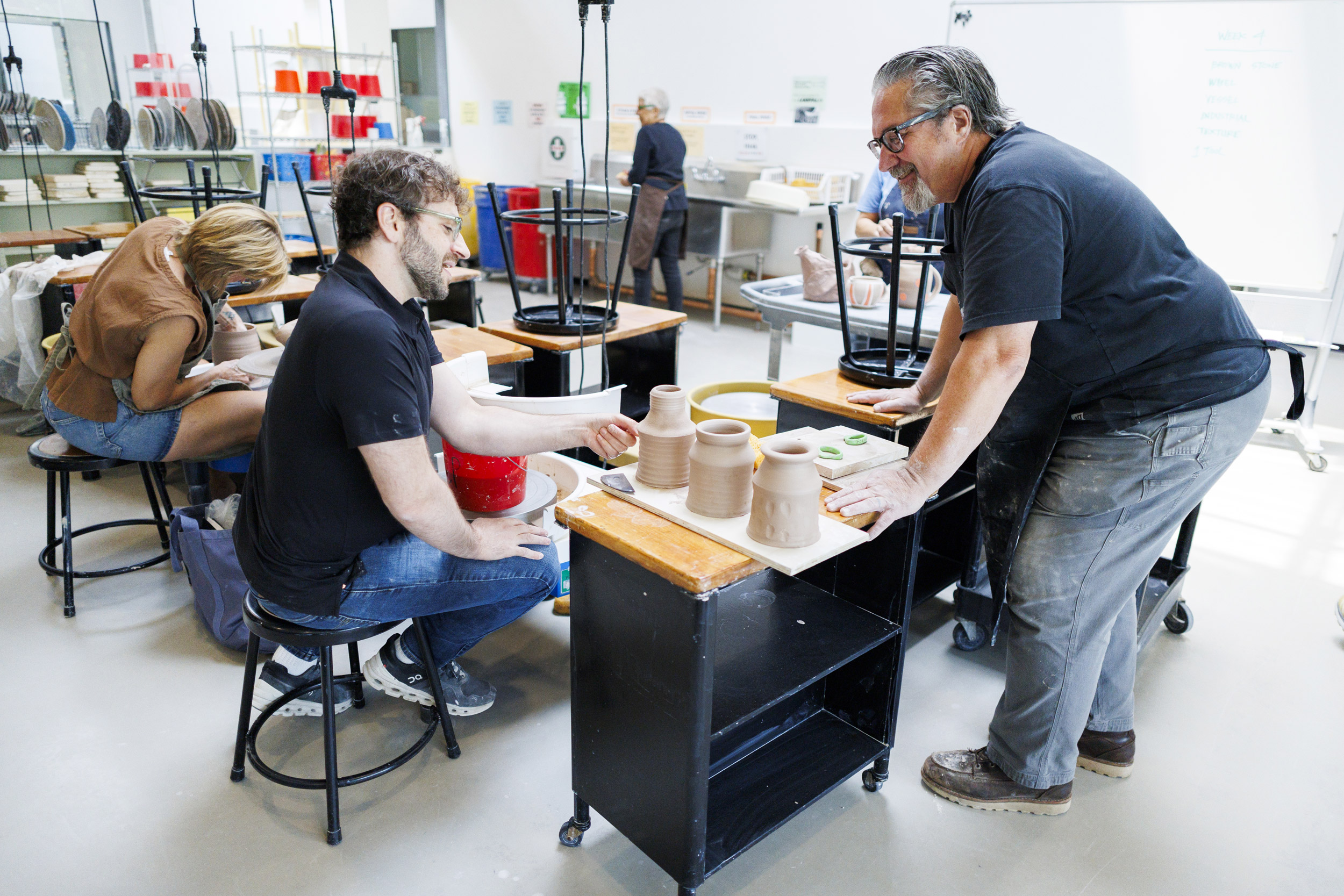
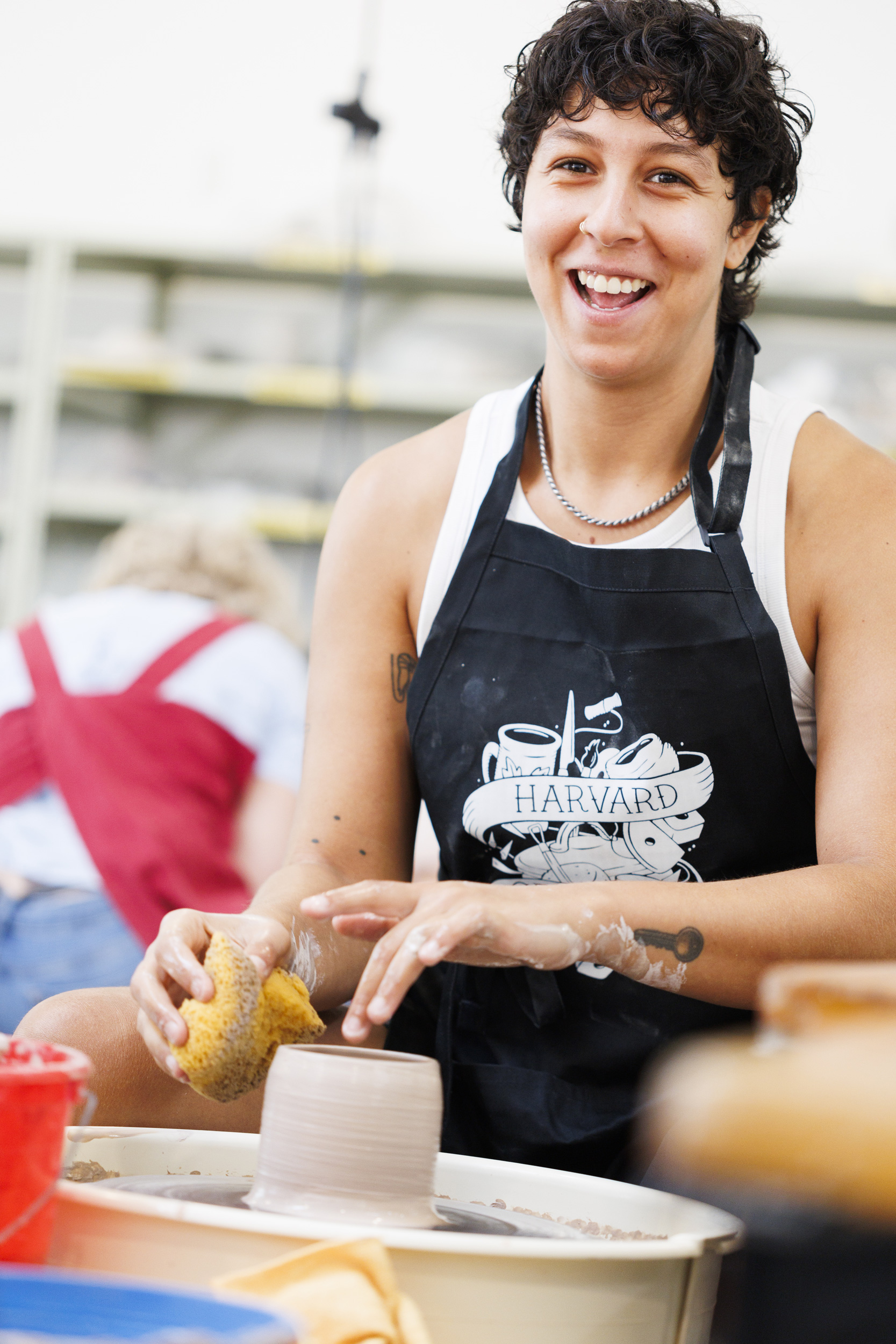
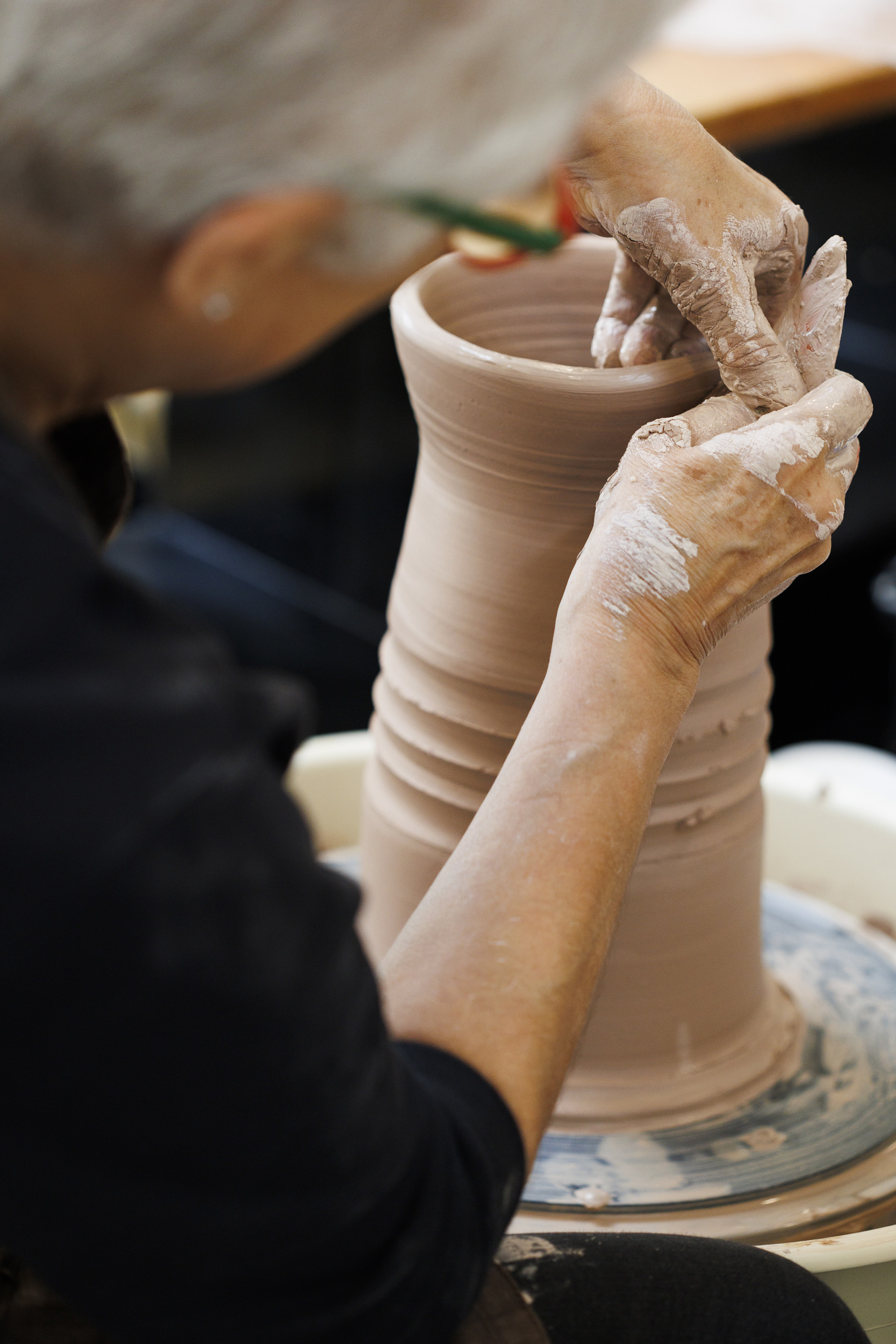
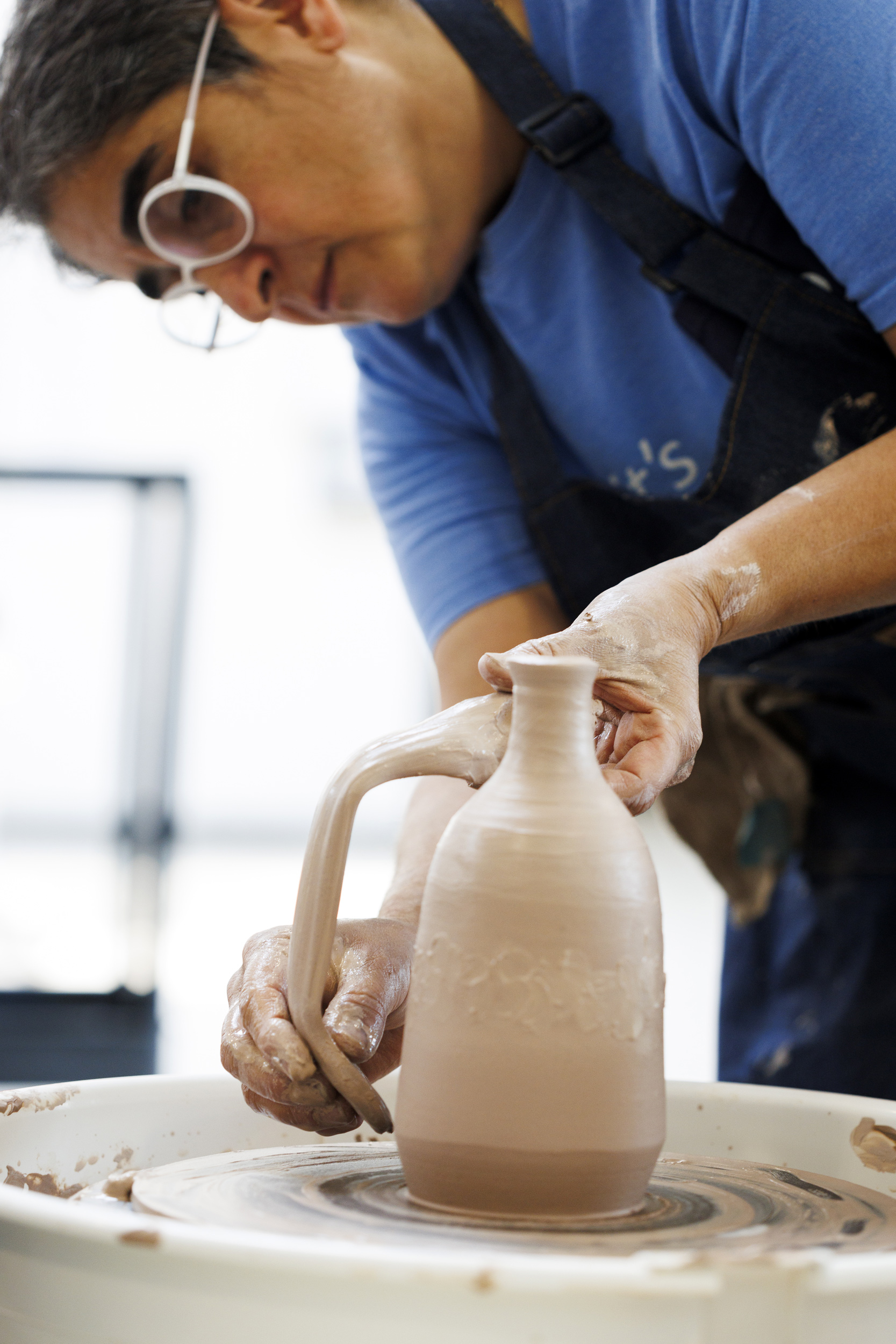
The Randomizer seeks to elicit the kind of bravery exhibited by students new to the art. As Hubbard put it: “I’ve seen people in beginning classes who are touching clay for the first time, to see the fearlessness that they have, and I think we sometimes lose that. Hopefully, this brings a little bit of that back.”
With more than 20 years at the program, Suzana Lisanti, a student and instructor (she teaches wood-firing workshops), enjoys the spontaneity. “I had to get over the concept that I had to have finished products all the time.” For the first challenge, she made a whale that led her down a new path. “I discovered I’m interested in doing whales. It wasn’t a passion before, and then after class, I remade it.”
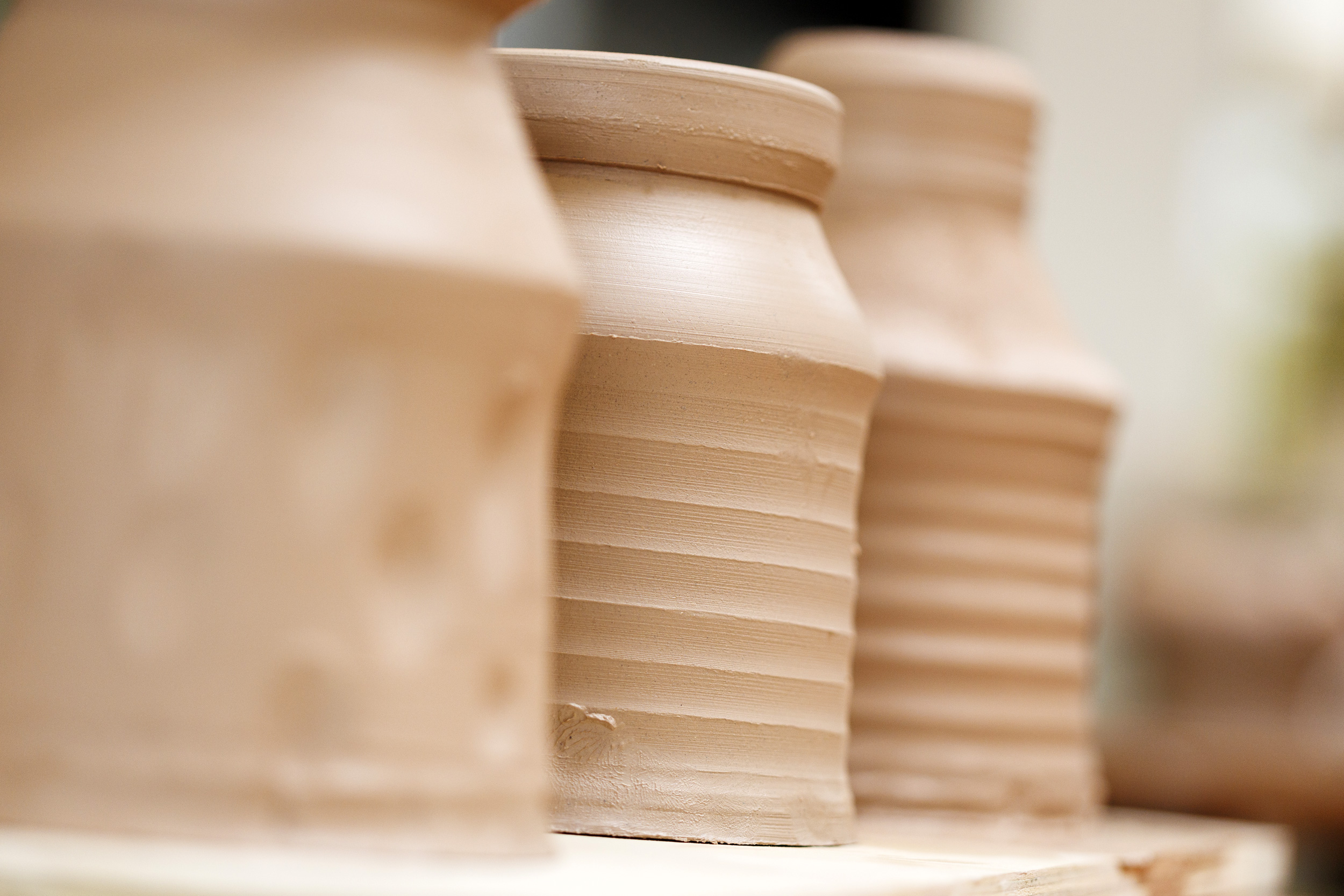
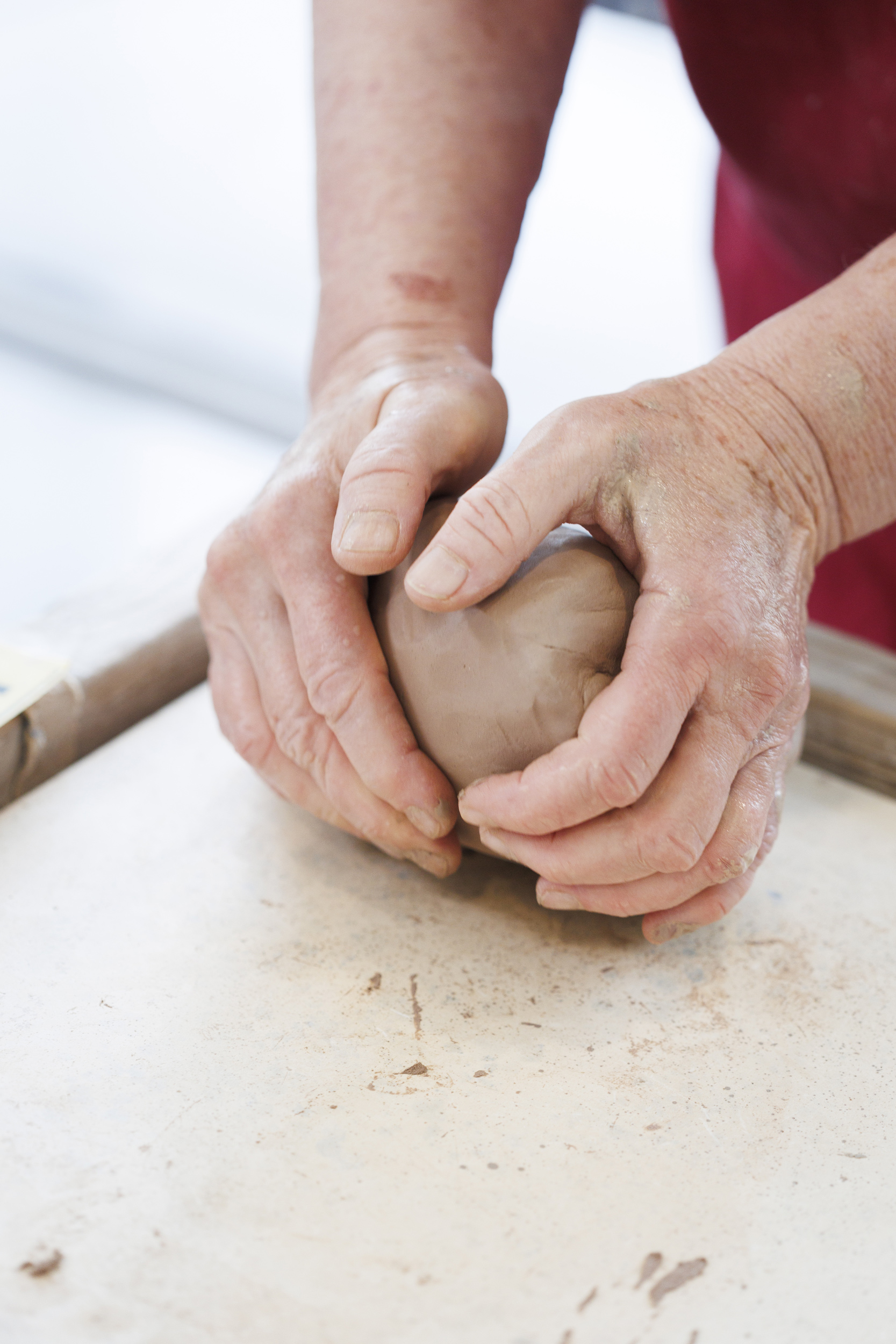
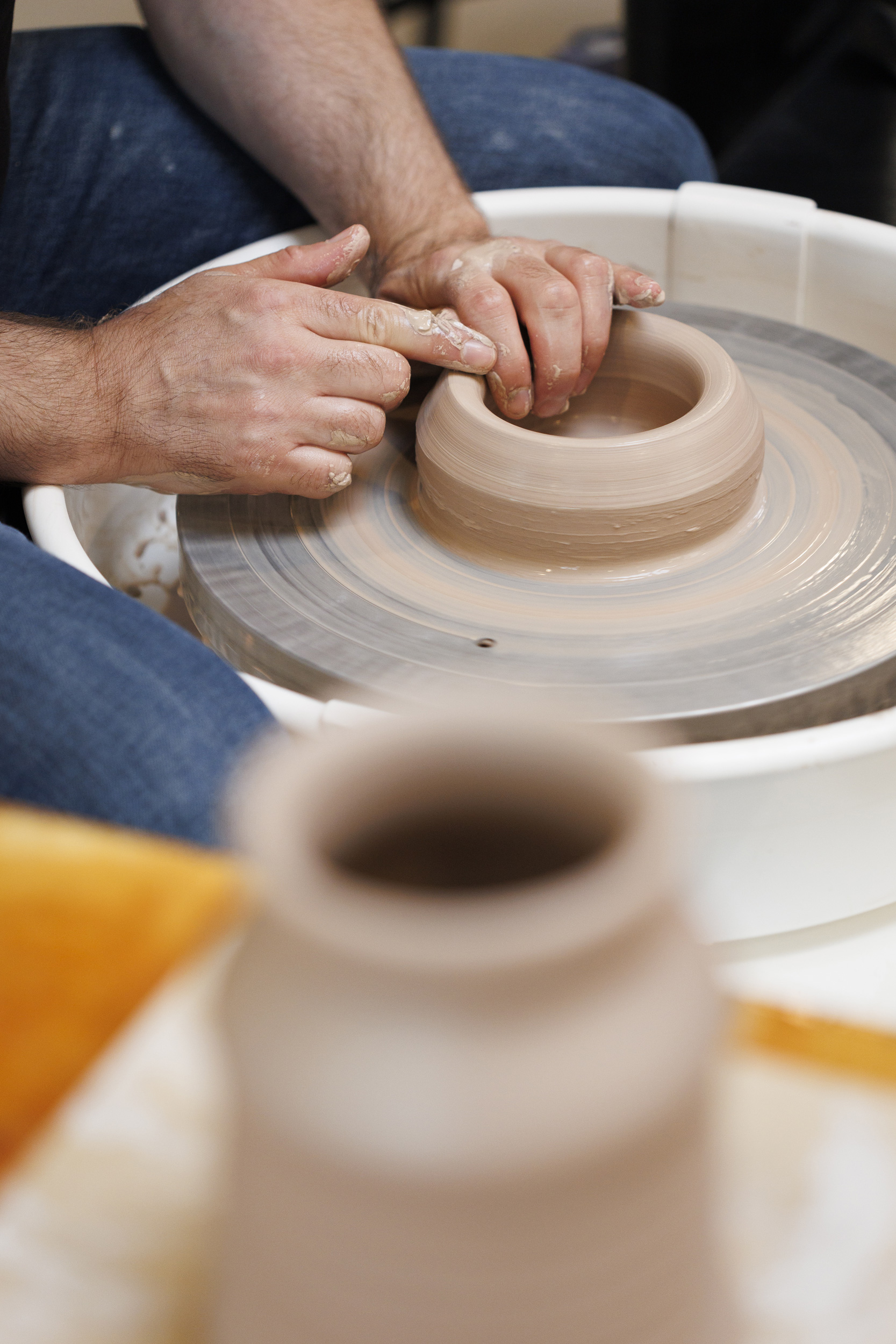
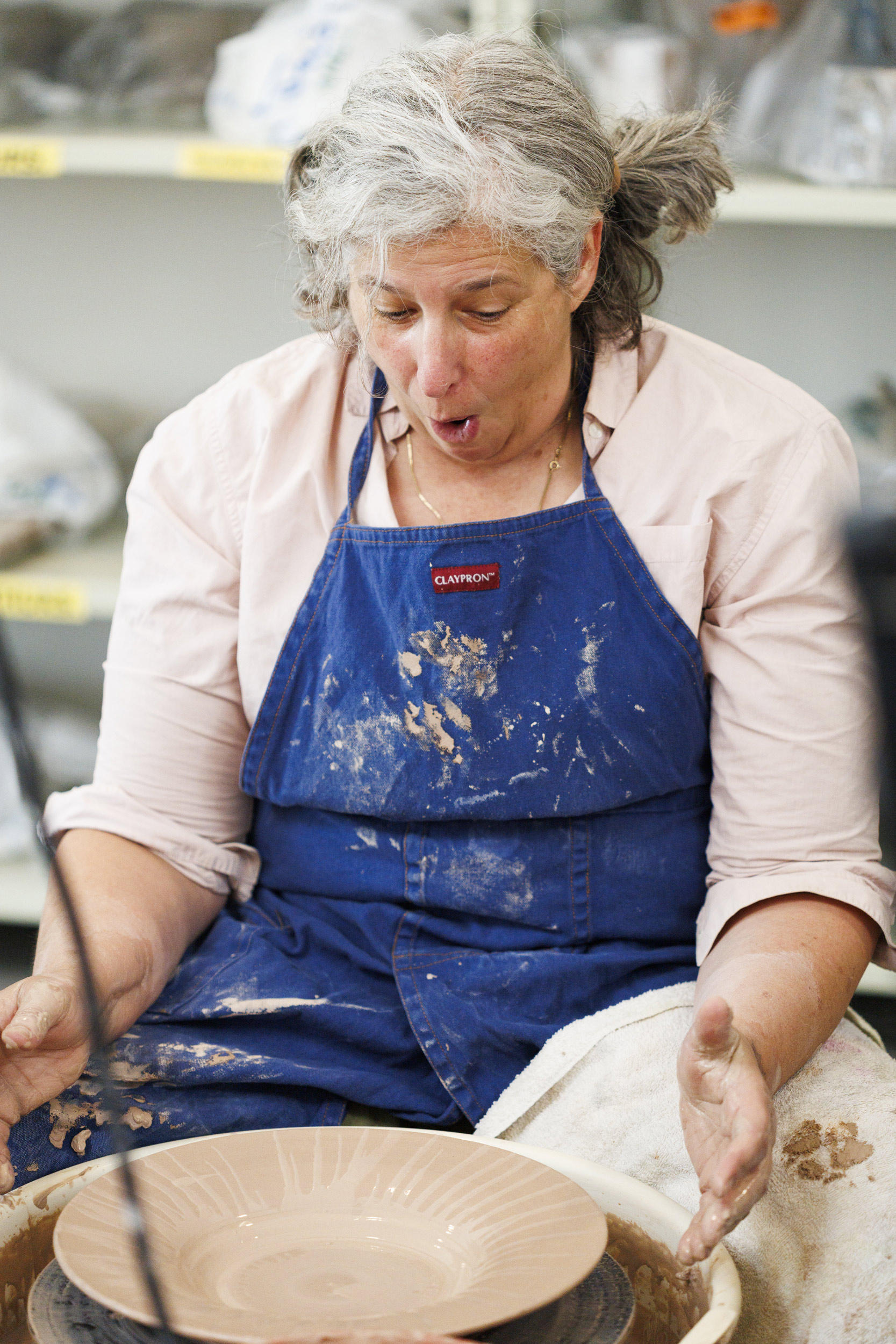
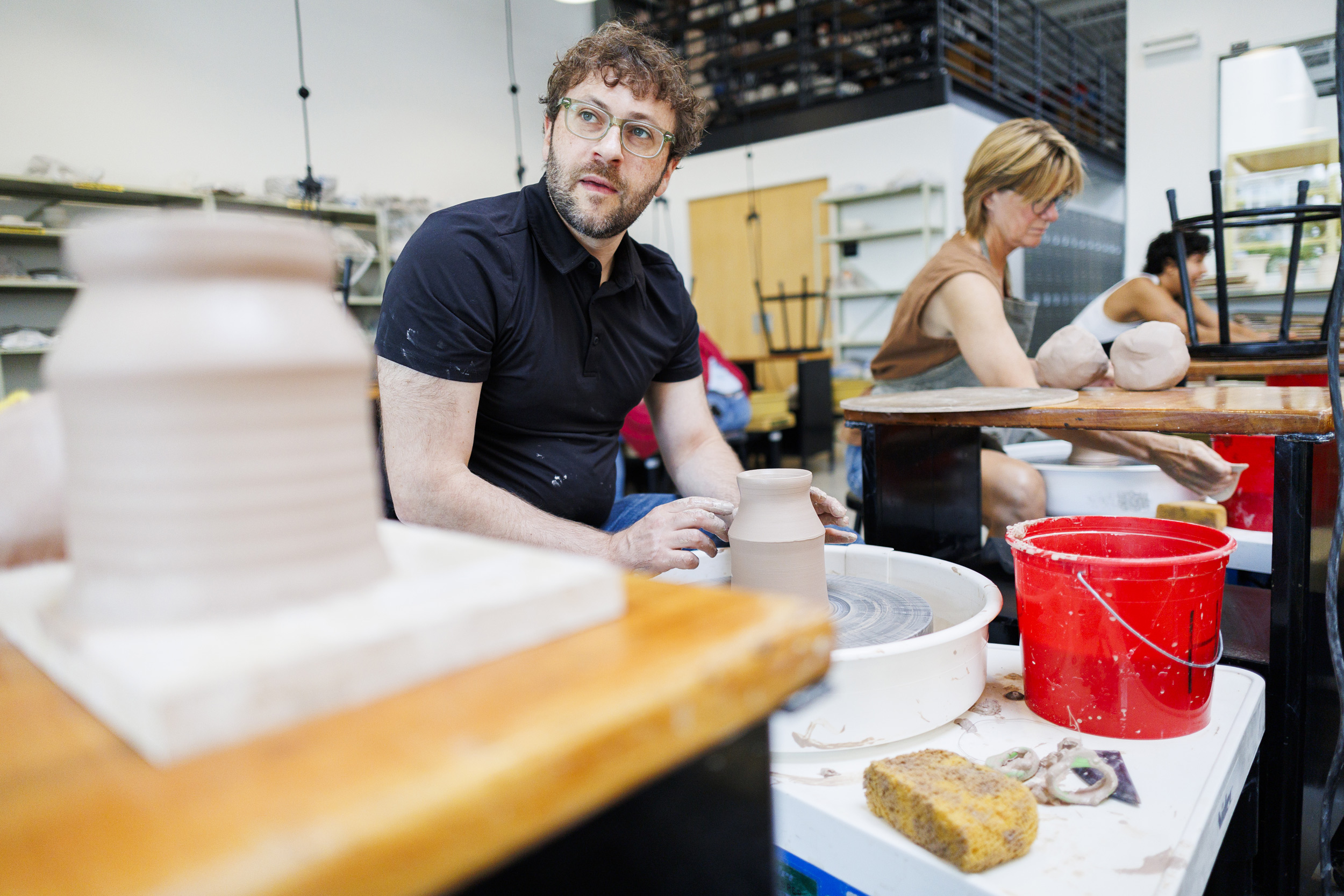
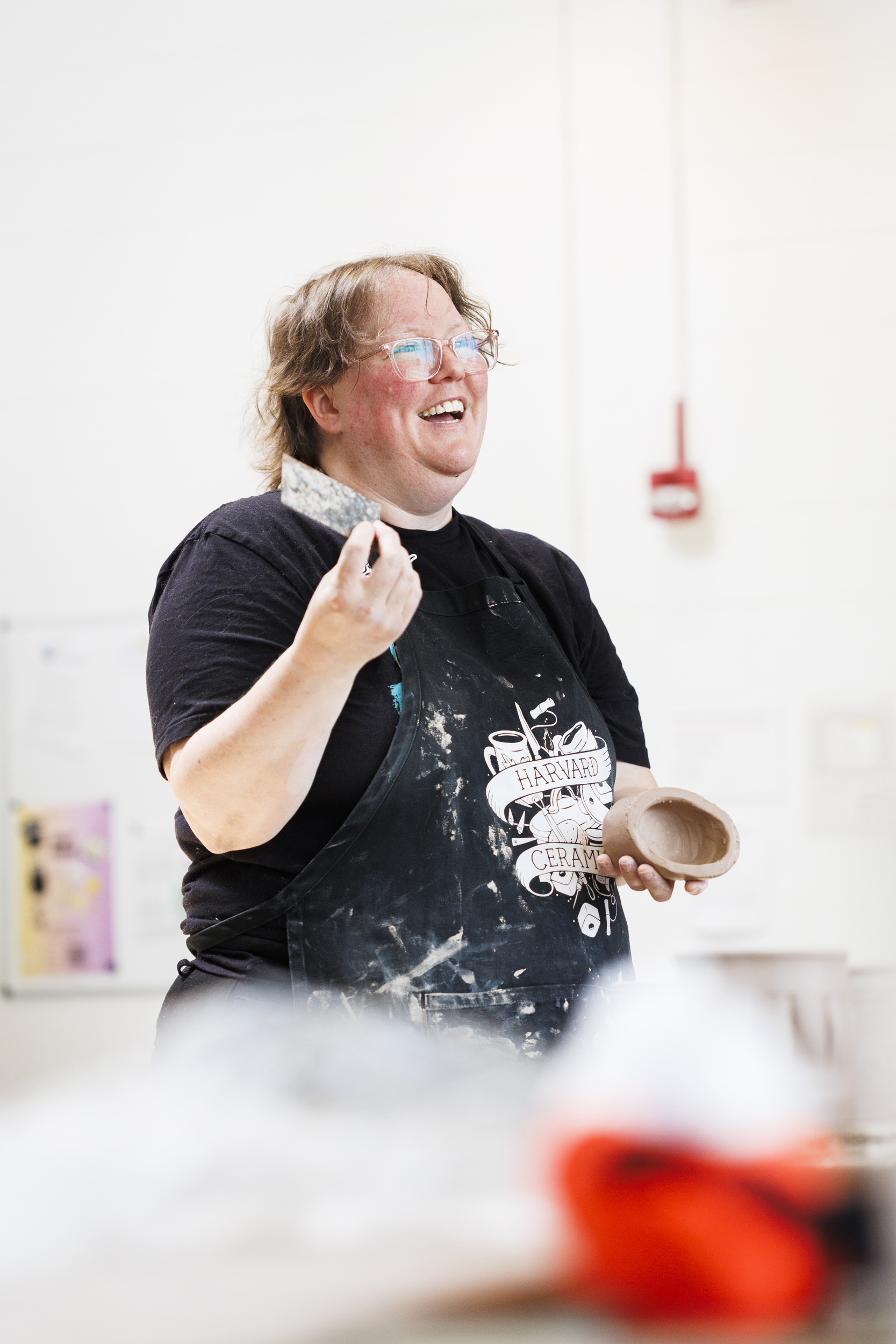
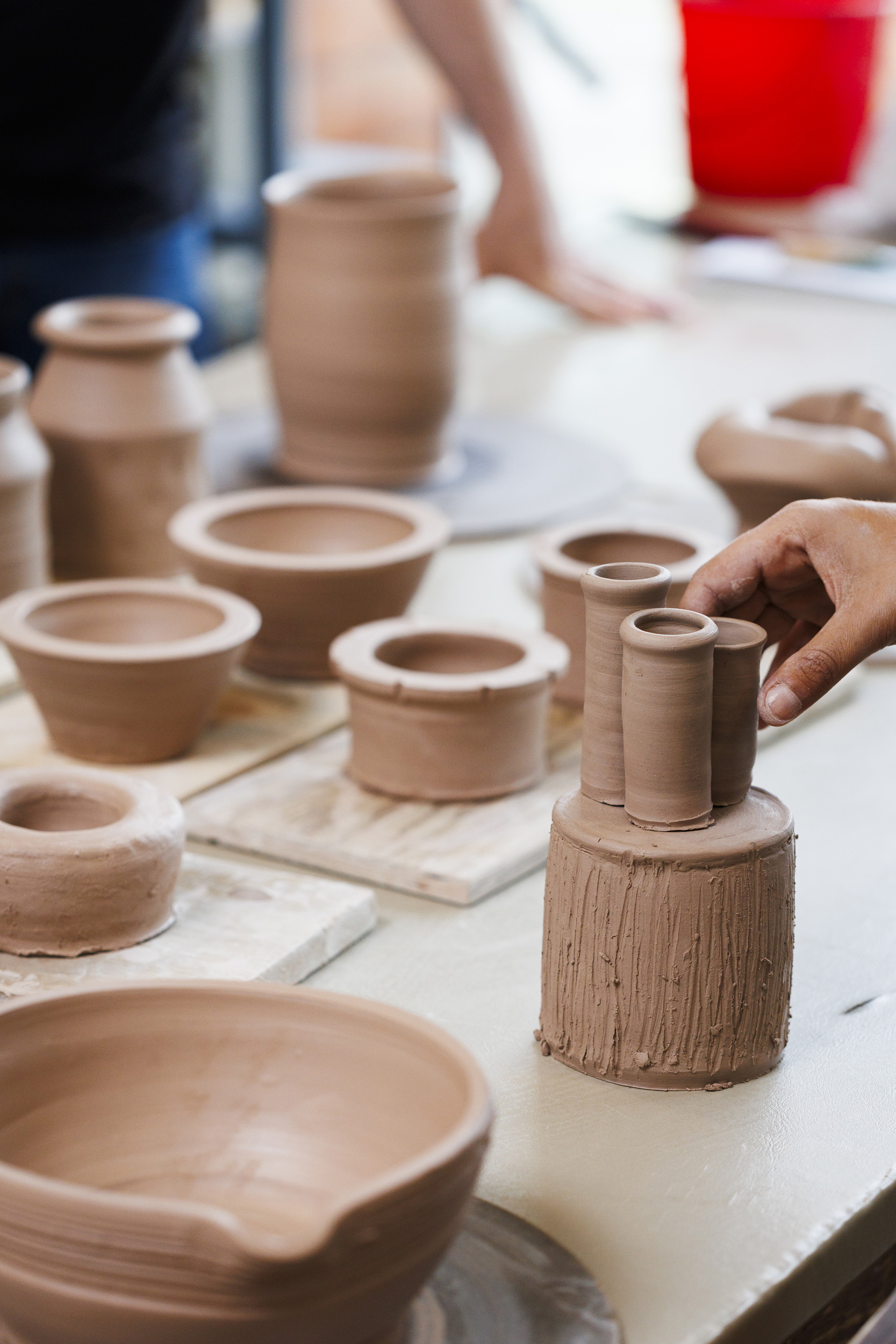
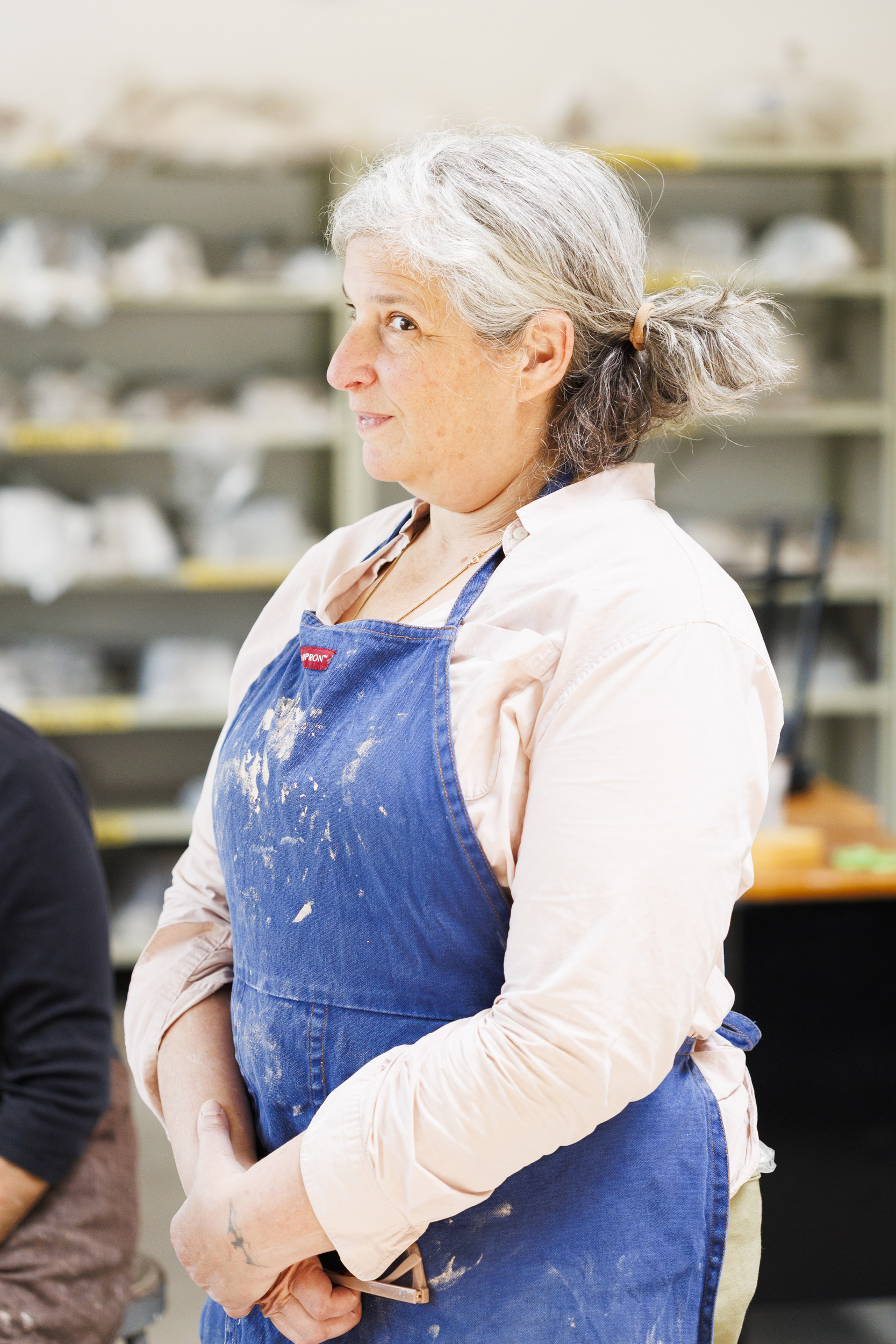
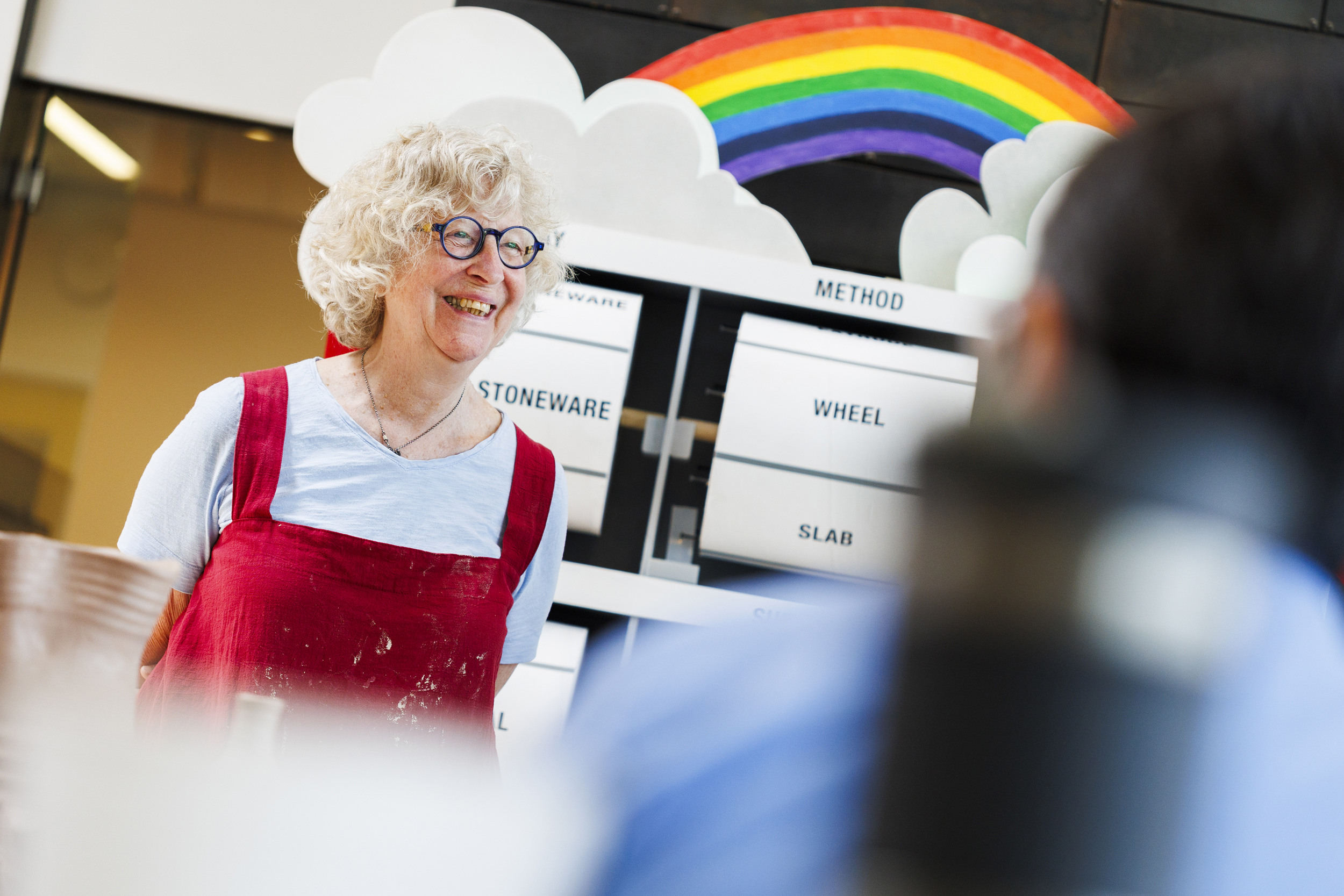
On a recent visit to the class, The Randomizer spun “brown stoneware,” “potter’s wheel,” “vessel or utilitarian,” “industrial style,” “surface texture,” and a challenging wild card — to use only one tool. Student Badriyyah Alsabah said, “One of my favorite parts is the immediate moment after all the choices are revealed, and everyone’s looking at each other, ‘What do we do now?’”
For this particular challenge, the wild card “one tool” instruction was the topic of discussion, and students were divided between selecting a sponge or a throwing rib. The constraint sent the potters into creative spaces, solving problems, changing techniques, and adapting tools.
“I’m just grateful to have the ability to explore with clay and have a really good laugh,” Alsabah said. “It’s the class I’ve loved the most.”
